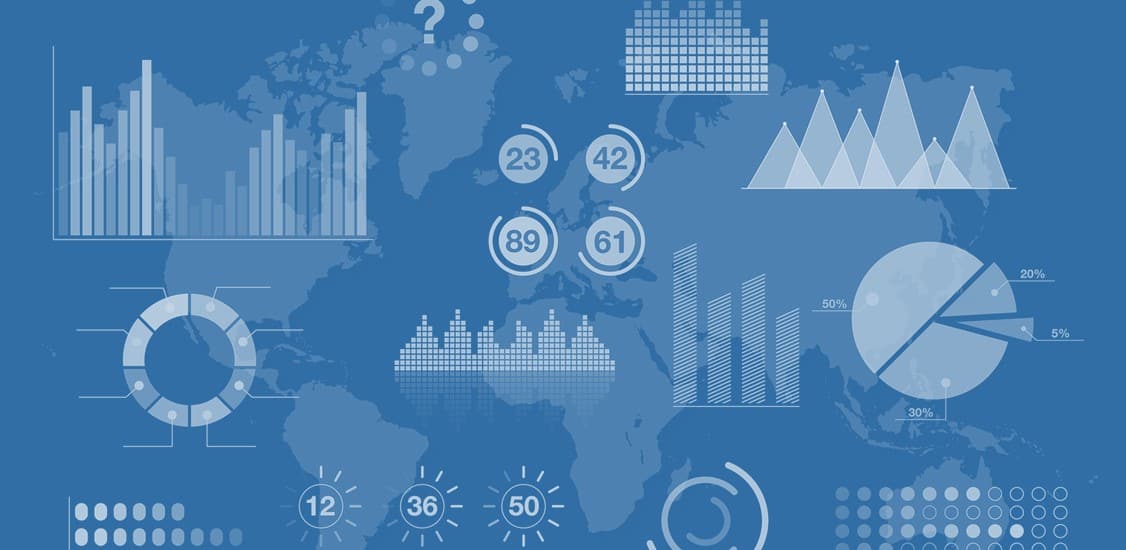In the past, most companies had to rely on internal resources to make informed business decisions. Organizations would have to set resources aside to physically research a specific market or they would have to outsource the research and pay for the data collection, storage, and interpretation. Organizations had to employ data collectors and GIS experts to go out in the field to collect data, process it in house, which then resulted in immense overhead charges.
With the arrival of technological progression, data became “too big” to manage in-house, and various formally internal work efforts have splintered into whole new business categories. For example, the term SaaS is widely known and stands for Software as a Service. Another relatively new concept, DaaS or Data as a Service is taking the telecommunications world by storm. Both fall under the umbrella term of cloud services, which also includes infrastructure as a service. The evolution of these services has led to where we are today.
The future is here
Telecom technology has been steadily progressing as the backbone to every industry, powering all sectors of economy, from the entertainment industry to space exploration. Big data is essential to businesses and the amount of collected data increases every day. As a result, the emergence of DaaS introduced a facet to the new cloud paradigm.
This shift involved the development of service-oriented architecture or SOA and gave birth to the infrastructure systems in which the information lives in a highly interactive space. In other words, SOA allows multiple application components from various companies to interact seamlessly, but needs to work with tools and protocols which feed information to the programming. The advancement of specific types of programming and software, such as SOA, has made DaaS a possibility now.
The benefits of DaaS
When data is presented to consumers in a way where the end-user is truly thought about in the data development process it can generate various benefits.
Value - When a company or organization has access to proprietary data it has immense potential value. If data is cleaned or structured with certain attributes it can pose even greater value. It is also essential that the data is extremely accurate and up to date.
Cost-Effectivity - An enterprise is looking to save and reduce overhead. When a company subscribes to DaaS they can access information for a fraction of the cost. This is due to the savings seen from hiring less employees and resources to perform the tasks necessary to collect, sort, and store data in-house.
Agility - Consumers can search and sort through data faster than ever before. They can also interpret information and move easily from one platform to another. This ease of agility can also transpire to ease of collaboration and administration.
Quality - When a company controls the data via an interface it translates to a quality product for the client due to the rival fact of competition. When companies provide similar offerings, they are competing for your business. If there is an element of competition, then the client will receive more quality options to choose from.
Business Intelligence - When a company is able to implement data into its daily information processing, it allows for business strategies, technologies, and operations to be optimized and highly efficient. Utilizing DaaS also can provide companies with a predictive view and insight to make better business decisions.
DaaS key activities
There are various benefits to incorporating DaaS into a company’s protocols and tools. Knowing what the benefits are can be tempting but knowing how to utilize the four key components of DaaS integration is essential to gain the most insight from the data.
Database - The main component is being a database where pertinent and sensitive information can be stored securely and efficiently. Using DaaS supports the traditional activities of collecting and supplying the raw information.
Information - The second activity made available by DaaS is the interpretation of information by having continual access to simplify and aggregate the data. This provides the DaaS platform to be enhanced, enriched, filtered, refined, and delivered to the company or key decisions makers as a whole.
Knowledge - DaaS allows users to lean on domain expertise which provides specialized advice in a business setting.
Business Intelligence - When all three activities are followed, DaaS provides wisdom or business intelligence giving companies and organizations long-term insight in the decision-making process. This allows a company to have complete knowledge for the foreseeable future and provides a tremendous value.
Your company and DaaS
DaaS can be applied to a plethora of industries including but not limited to: academia, consultancies, economic development, finance, gaming networks, government agencies, private enterprise, real estate, urban planning, and more.
When leading an organization with key performance indicators or KPIs to monitor success, data is essentially at the forefront of every business decision that is made. A company must first identify the problem for which data can be a solution. Is the data applicable to an entire market? Does it align with the company’s brand strategy? Once a company can clearly define pain points, it can develop a hierarchy of needs and determine which specific data should be acquired for business functionality. This will then evolve to engaging the data so the company can calculate the ROI generated by the DaaS.
Identifying the issue and determining the best course of action monetarily will bring the company to a growth stage with the information provided by the data. This can directly translate to high lead generation and supported sales conversion. After the growth stage will come the deliverable stage of the data, where customer retention is improved, the margin target contribution is exceeded, and the customer experience is extremely satisfactory.
Is DaaS right for your company?
Due to societal improvements and technological advancements, data is more pertinent than ever in business operations. Utilizing the appropriate DaaS platform can make all the difference on a company’s bottom line. When utilized correctly, this information can provide a plethora of benefits for the company and the end-user. Almost every industry can benefit from proper data implementation and DaaS.






















